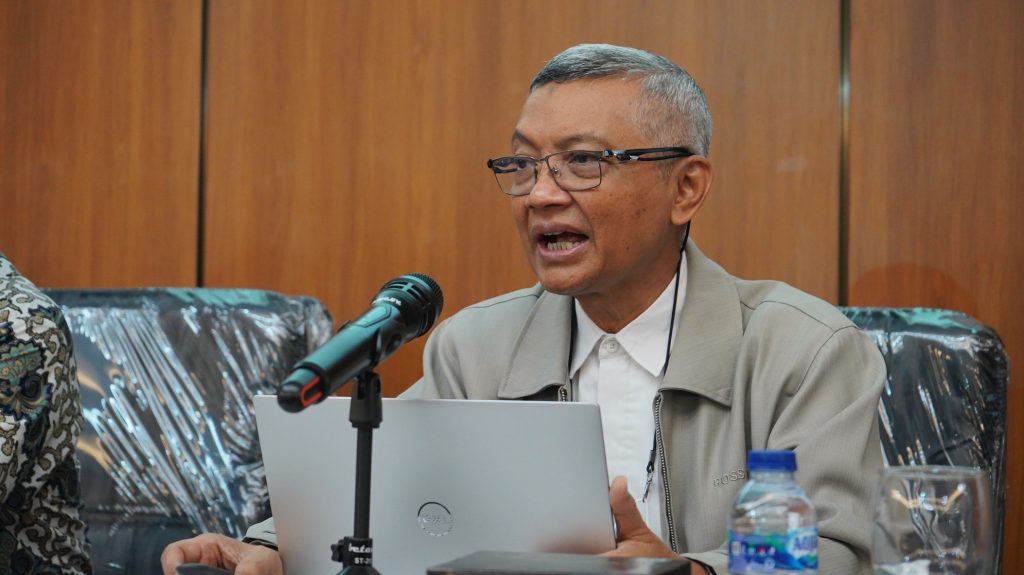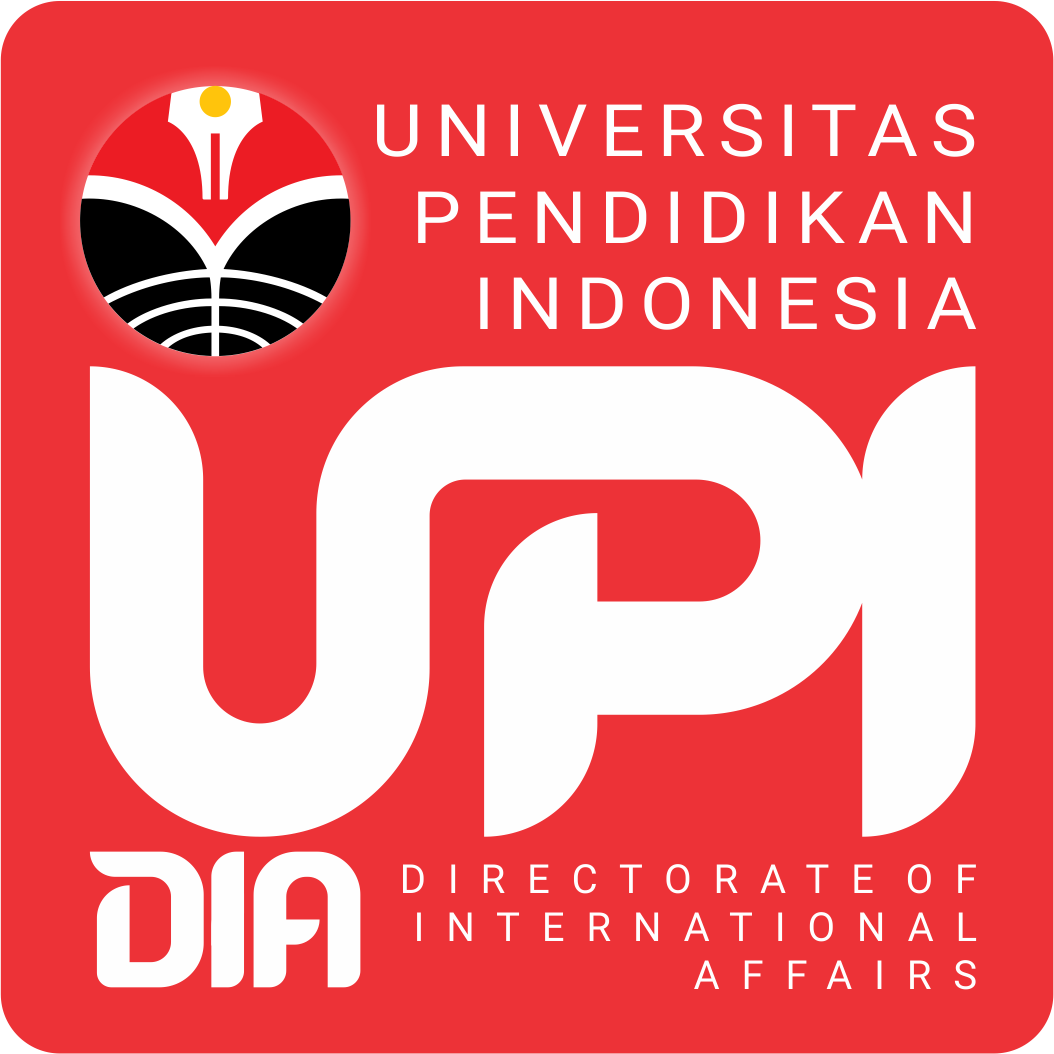

Chairman of the World Class University (WCU) Team at the Ministry of Education and Culture, Prof. Ir. Hermawan K. Dipojono, MSSE., Ph.D., attended the Universitas Pendidikan Indonesia (UPI) to discuss the Policy Direction and Implementation of WCU in Higher Education Institutions. Prof. Hermawan served as a speaker alongside UPI Rector Prof. Dr. H. M. Solehuddin, M.Pd., M.A., Prof. Dr. H. Mohammad Fakry Gaffar, M.Ed., as the Head of the WCU Research Team, and Prof. Dr. H. Didi Suryadi, M.Ed., as the Head of UPI’s DGB. The speakers addressed the Strategic Role of the Council of Professors in Formulating the Development Direction of UPI Towards a World Class University during the Seminar of the Council of Professors at Universitas Pendidikan Indonesia in the LPPM Building, Auditorium Room, 3rd Floor, UPI Campus, Jalan Dr. Setiabudhi No. 229, Bandung, on Monday (27/11/2023).
Prof. Ir. Hermawan K. Dipojono, MSSE., Ph.D., who also serves as the Chairman of the Academic Senate of Bandung Institute of Technology (ITB), emphasized two strategic roles of the Council of Professors in formulating the development direction of higher education institutions towards a world-class university. The first role is external, involving continuously advocating the country’s responsibility for the establishment of excellent research universities, with a current focus on PTNBH, including UPI. This advocacy should be consistently voiced collectively. The second role is internal, where the Council of Professors should always set performance standards for faculty that must be continuously improved over time through exemplary leadership.
Prof. Hermawan stated, “Looking at its performance, UPI is already excellent, being a PTN-BH. UPI has also caught the radar, entering the QS World University Ranking (QS WUR) 2023. Now, the focus is on the next steps to enter The Top 1000 or 700 Colleges and Universities in the World, which can be achieved in 5 years. Meanwhile, to enter The World’s Top 500 Universities, it can be pursued within 10 years, as the pattern suggests.”
He pointed out two common weaknesses of Indonesian universities: citations per faculty and internationalization. Internationalization involves network issues, and Prof. Hermawan urged Professors, who possess extensive explicit and tacit knowledge through their long journey in higher education’s tridharma activities, to take responsibility for solving these two major issues by building international research networks.
“Professors should lead in building expertise excellence, support and provide opportunities for young faculty to advance in excellence. They must help their institutions improve academic reputation, citations per faculty, publication quantity, publication quality, faculty-student ratio, international staff quantity, and international student quantity,” he emphasized.
Prof. Hermawan emphasized that university ranking is not the goal but a result of a process of maintaining quality in higher education. He urged continuous creation, preservation, and strengthening of a quality research ecosystem, including mechanisms for internships, sustainable mentorship, and becoming a hub for world-class researchers. Quality publications are crucial, so the creation of Indonesian Abstracts, international indexed publications with Arts and Humanities, Natural Sciences, Life Sciences and Medicine, Engineering and Technology, Social Sciences & Management classifications/clusters, is recommended. Establish at least 5 centers of excellence for each cluster mentioned. Additionally, engage in editorship and reviewing for top journals.
Prof. Hermawan K. Dipojono reiterated, “Strive as much as possible for UPI to be on the radar of QS World University Ranking. This involves intensive communication with QS Management to discuss UPI’s visibility internationally. Improve Academic Peers Data, concentrate on and enhance contacts with research colleagues domestically and internationally, focusing more on regional colleagues than international ones. Finally, the Rector should regularly keep in touch with Academic Peers.”
In conclusion, he encouraged Professors to be more enthusiastic about research collaboration with world-class researchers, laboratories, or institutions. Finding suitable collaborators takes time, so it is essential to start the search now, both domestically and internationally.
